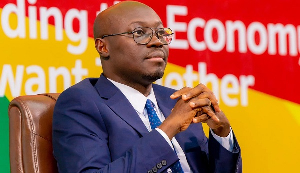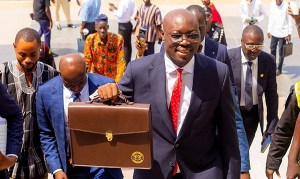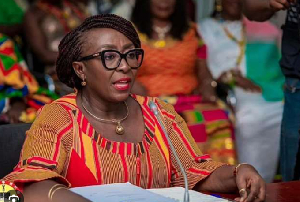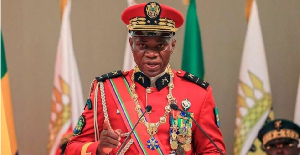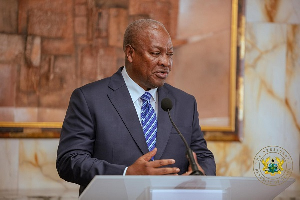Professor Asenso-Okyere?s assertion that Ghana can make huge economic gains from might be right, however this writer do not share that notion.
As the nation races towards its share goal of achieving middle income status at the shortest possible time (in our case 2020) the very professionals that we would need their services most are our medical professionals and teachers. Since the dawn of independence our teachers and medical professionals together with our home grown engineers trained at Magazines right across the country are those who have held our country together.
This writer and various commentators have written about the worrying tide of migration of our professionals. This does not bode well for our country. As the West African sub-region becomes more integrated the demand for better Health care in the region will fall on our shoulders and the need for better and/or improve facilities would be demanded.
In an earlier analyses (Ghana Salutes Dr Ebenezer Okletey Terlabi and his Team of Researchers at Kwame Nkrumah University of Science and Technology and University of Ghana Medical Centre ? It?s about time) this writer argue that some of the huge inflows from skill Ghanaians in Diaspora should be use in social development??..social development includes improving the conditions of service and salaries for not only our medical professionals but our teachers, lecturers, men and women of our Armed and Police Forces and better facilities for these professionals. The living conditions of these men and women are unacceptable. Professionals like Dr Terlabi and others who could easily have chosen to migrate with their wealth of skills should be handsomely rewarded. The effect of Brain Drain on our country is somewhat holding us back from moving forward. We have the skills and the capability, as was exhibited by Dr Terlabi and others in their research that given the necessary resources we can match most countries in the developed world. Yes some of our compatriots like Kwame Pianim and others have gone home to help with the development and others are helping by remitting more to the homeland. However the essence is to try and hold on to those that we dearly need their service.
All stakeholders, including our nananom, have voiced their concerns about the effect brain drain is having on our economy. Thus Professor Asenso-Okyere?s suggestion of training medical professionals for export is a very dangerous precedent.
Our Armed Forces and the Police Force showed their professionalism and discipline in both Bosnia and the Middle East during their Peace Keeping duties. Our Doctors and Nurses are proving their dedication and professionalism in where ever they find themselves. As Professor Kwadwo Asenso-Okyere stated in his paper on International Migration our professionals were all trained in Ghana.
This writer argue for another medical school specialising in Tropical diseases to be establish at University of Development Studies, Tamale to help take the burden off Okomfo Anokye Medical School of KNUST and Korle Bu Medical School of University Of Ghana, Legon. Perhaps Professor Asenso-Okyere?s suggestion of the establishment of Biomedical Science Institute could be located at Tamale to cater for the demands from our northern neighbours where the demand and pressure for research will be great.
Our dream of achieving middle income status by the year 2020 is on course. The urgency of achieving this goal is share by all as the ongoing vetting of our ministers testifies.
The government is right to be worried about the large exodus of our medical professionals, for not only is it having a negative effect on health care delivery, but as the region becomes more integrated, the demand on our medical personals and facilities (perhaps the best in the whole West Africa sub-region) would be greater. Training more of them for export is wrong. As the nation becomes more develop we would need the services of our professionals in every sphere of the economy.





